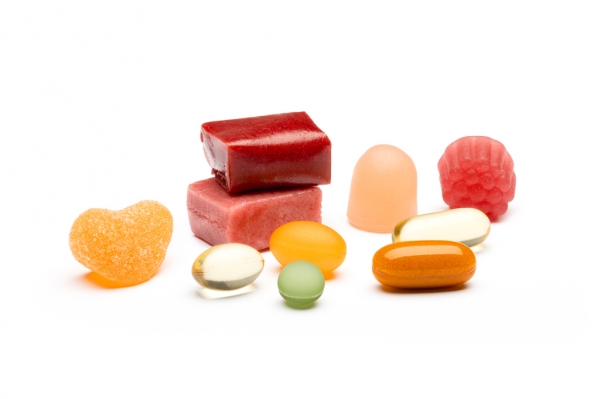Promotional Features
Top trends driving VMS growth in 2023
The market for vitamins, minerals, and supplements (VMS) continues to shape-shift as consumers become savvier about incorporating preventative natural health products into their lives. In 2022, several trends arose that will likely make a significant impact upon consumer healthcare companies’ R&D efforts in 2023 and beyond.
As more consumers actively engage in strategies to take better care of their own health and wellbeing, they are more likely to seek out VMS products that promise differentiation, novelty, or – often in parallel – a more pleasurable experience than a traditional pill format. As the choice of product has become more important, so has the choice of the manufacturing partner that empowers the consumer health brand to bring their products to market.
Here are the top trends and insights that the team at Catalent believes will need to be considered if consumer health companies are to be successful over the coming years.
Inflation
The Consumer Price Index shows that the cost of food products has increased dramatically, with many types of food seeing double-digit inflation in 2022. But non-prescription drugs and personal care (a category that includes dietary supplements) show lower rates of inflation than other categories, however these are still impactful to consumers’ wallets.
“Inflation is a reality and price increases in the market have been happening across VMS, but even more so in other categories. Consumers are making trade-offs to prioritize purchasing of more necessity or essential items,” says Patrick Vesay, Catalent’s Global Marketing and Strategy Director for Consumer Health.
Growth muted in 2022
In 2022, the market saw a significant shift from the growth occurring in 2021 to a quarter-by-quarter softening as consumer purchasing habits changed. The full-year estimate (through October 2022 data) is for the total VMS market to be down 2-4% in dollars, and down 5-7% in volume (source: SPINS).
Throughout the year, purchasing had continued to shift online from in-store; however, late Q3 witnessed a shift back to in-store beginning to show up in the data and is something to continue monitoring closely as we move into 2023. Categories that fulfill more immediate needs, such as Sleep and Stress, performed better than more long-term use categories such as multivitamins.
Vesay relates: "Our expectation is that 2023 will continue to show volatility, but as categories outside of VMS that are being prioritized begin to normalize, we should see a return to the positive growth curve that was occurring in VMS over the longer term, with the more experiential dosage forms and categories growing ahead of the market on average. Brands need to be planning for this return to growth, so working with the right partner who is focused on the market and able to help accelerate innovation will be critical to winning over the next 12-24 months.”
Post-COVID health seekers
The COVID-19 pandemic, including the various mutations of the virus and infection rates, have had a dramatic and likely long-lasting impact on consumers’ attitudes toward their own health, and how much responsibility each of us takes for maintaining it. Although this is no longer new news, the wider adoption of a more preventative mindset will impact VMS trends for 2023 and beyond.
In the last two years of the pandemic, consumers have tended to pay attention to chronic conditions, energy, focus and attention, along with sleep insufficiency and gastrointestinal (GI) disruption. Perhaps unsurprisingly, immunity will also remain top-of-mind as different health concerns (e.g. flu, Covid, RSV, others) fluctuate in markets around the world.
Stress management
It is clear that more people are suffering from the negative consequences of stress, and that for many, stress is experienced more frequently and profoundly. This has been especially true given the uncertainties of the pandemic, and the post-pandemic world of conflict, increasing costs of necessity items such as food, and unreliable supply chains. For the individual, all this can translate into any number of health conditions with stress at their root. There are three high-velocity categories of VMS, each of which is directly and indirectly affected by stress.
Energy and focus
As well as seeking energy to perform physical workouts, consumers are also seeking nutritional support to enhance mental energy, including sustaining focus and concentration. Whatever the cause, more people now understand the role of overactive adrenal function in impairing energy and clarity. The inverse link between high stress and energy is a concept that will likely gain more recognition and one for which consumers will undoubtedly demand more solutions.
Stress creates a response in adrenals, changes in the body’s biochemistry, and can lead to excess production of cortisol. This causes changes in brain and immune function, as well as blood sugar stability.
Healthy sleep
Consumers are increasingly seeing, and being made aware of, the link between sleep and energy; like yin and yang. As highly stressed individuals seek out supplements to improve mental and physical energy, so too are they seeking natural alternatives to sleeping pills and are using supplements to promote healthy sleep and remove themselves from the vicious cycle that will drain their energy the next day. This could be an opportunity for a larger variety of sleep aids to enter the market and in new formats.
Healthy digestion
Runaway stress can also wreak havoc on digestion, transforming a natural process into one that can be painful and cause distress. Consumers are gaining more sophisticated knowledge about how the gut-brain-axis (GBA) contributes to health and how it causes illnesses.
Many gastrointestinal disorders are caused by inflammation. Stress has a tremendous role in promoting inflammation and, because it reduces the efficiency of the digestive function, can lead to nutritional deficiencies as it progresses.
More innovative delivery forms
With so many VMS options available to consumers, it is likely that many will seek products that stand out through benefits, performance, and experience. True advantages will be different for different consumer groups, so a smaller dosage form could appeal to some, easily chewable formats or delayed-release and those that prevent gastric repeat (such as the “fishy burp”) could be more important to others.
Catalent’s technological portfolio is arguably the broadest in the marketplace, and spans two major categories – soft-dose and solid-dose. Catalent’s soft-dose products originated with the RP Scherer® softgel manufacturing technology, and now feature advanced formulation technologies such as OptiGel® DR, OptiGel® Mini, OptiGel® Micro, and the OmegaZero® microemulsion technology for odiferous oils like fish or peppermint oil, among others. More recently, Catalent added gummies and other chewable technologies to its portfolio to appeal to a broader VMS audience and meet the ever-changing consumer demand for experiential delivery formats.
Shift to experiential formats
Generating a “wow, what’s that?” reaction that stimulates further trial is powerful. And very few things can do that more effectively than an innovative delivery system. For example, EasyBurst® chewable softgels feature a chewable outer shell, with a flavorful liquid center; gummies, with on-trend flavor profiles, are available in plant-based pectin and traditional gelatin variants; soft chews allow for high ingredient dose-loading, lozenges that are individually wrapped like confections, and effervescents that provide a fizzy sensation make it easy to take on-the-go.
“Perhaps because there are so many ‘me too’ products, we are seeing more innovative brands take advantage of the shift in consumers’ preference for experiential formats,” observes Vesay. “It’s important to keep in mind that in every facet of life, and even in VMS products, people are seeking a more engaging experience. Products like gummies and soft chews can activate multiple senses because they look, taste, feel and smell more appealing. These technologies will continue to attract more consumer VMS spending in the future and are ‘must haves’ in your portfolio.”
Conclusion
“If you are seeking to develop a VMS product that your consumer will ingest (swallow or chew), Catalent is the ideal partner to innovate with and help bring your product to life,” says Vesay. “Our depth of technical expertise, technology portfolio, and Consumer Health product library with 100s of market-ready formulations across VMS, OTC, and Beauty Care, enable a faster path to market of consumer preferred formats and products.”








